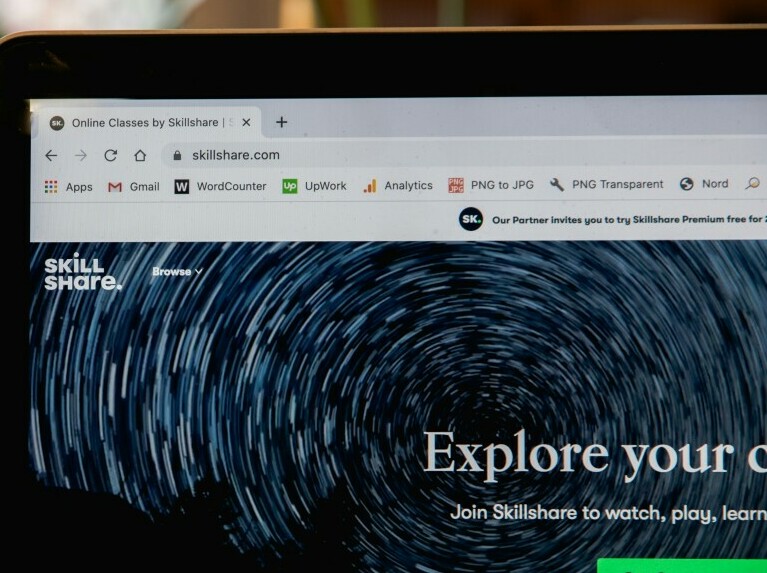 Transferable skills are game-changers in anyone’s career. These are those versatile skills you gather from different experiences that can be useful in lots of different jobs and industries. They aren’t tied to a specific job or field but are applicable across the board.
Transferable skills are game-changers in anyone’s career. These are those versatile skills you gather from different experiences that can be useful in lots of different jobs and industries. They aren’t tied to a specific job or field but are applicable across the board.
Think about communication, teamwork, problem-solving, and adaptability. These skills can be picked up from any job, whether you were flipping burgers in high school, leading a team project in college, or managing a small team in your current role. The beauty of transferable skills is that they build up over your lifetime, making you a more valuable asset to any employer.
Why are they important? Transferable skills increase your employability. Employers value candidates who have diverse skill sets and can hit the ground running in any situation. These skills show that you’re flexible, a quick learner, and adaptable to changing work environments.
For example, if you’re great at problem-solving, you can bring that skill into any job. Whether you’re a software developer debugging code or a sales manager finding a solution to decrease return rates, problem-solving is key. Your ability to communicate effectively can make you stand out, no matter the role. Clear communication helps in understanding and being understood, a win-win in any scenario.
In a fast-evolving job market, companies look for employees who are not just experts in their current field but also have the ability to transfer their skills to new and unexpected challenges. It’s not just about what you know but how you can apply what you know in various situations. The more versatile your skills, the better the opportunities.
Identifying Your Transferable Skills
 To begin with, you need to figure out which skills you’ve already got in your toolbox. Self-assessment is your friend here. Take some time to really think about your past experiences and how they’ve shaped you. Think about the tasks you excelled at and what others often come to you for help with. Did you organize a community event? Bam! You’ve got organizational skills. Solved a tricky situation at work? There’s problem-solving and possibly some negotiation skills too.
To begin with, you need to figure out which skills you’ve already got in your toolbox. Self-assessment is your friend here. Take some time to really think about your past experiences and how they’ve shaped you. Think about the tasks you excelled at and what others often come to you for help with. Did you organize a community event? Bam! You’ve got organizational skills. Solved a tricky situation at work? There’s problem-solving and possibly some negotiation skills too.
Identifying your strengths and weaknesses is also essential. Being honest about what you’re good at (and what you’re not so good at) can guide you on where to focus your energy. For instance, if you’re fantastic at writing but know your public speaking isn’t up to par, you now have a roadmap for improvement. Jot down these skills; seeing them on paper can be enlightening.
Sometimes it’s hard to see your own abilities clearly. That’s where real-life examples can help. Look at job descriptions in your field or even in areas you’re interested in moving toward. What skills are these roles asking for? Cross-check with the tasks you’ve handled. You might surprise yourself with how much you match up. Talk to peers, mentors, or even use career counseling services—they can offer an outside perspective on skills you might overlook.
Let’s not forget about soft skills. They’re as important, if not more so, than hard skills. Emotional intelligence, time management, and teamwork are universal skills that play a huge role in every job. Don’t underestimate them just because they aren’t tied to any particular task. These are often the skills that make you a great coworker and leader.
By clearly identifying what transferable skills you possess, you set the stage for using them to your advantage. Once you know what you have to offer, you can start honing these skills even more, making you an even stronger candidate in your current job or the next one.
Developing Transferable Skills
Building up your transferable skills isn’t just a one-time task. It’s something you constantly work on. One effective strategy is continuous learning. Take up online courses, attend workshops, read books, or even take up new hobbies that can teach you something valuable. There’s a wide array of platforms like Coursera, Udemy, and LinkedIn Learning where you can pick up anything from advanced Excel techniques to public speaking skills.
Professional development is another key aspect. Don’t miss out on conferences, seminars, and webinars in your industry. These aren’t just about networking; they’re rich learning grounds. You can pick up new trends, understand emerging technologies, and even learn about best practices. Plus, these events often have sessions specifically for skill-building.
Consider some self-directed learning too. If you’re a hands-on person, there are tons of DIY projects that can teach you new skills. Whether it’s coding a simple app, starting a blog, or even volunteering for a community project, these activities can provide practical experience. Real-world problems often require a range of skills to solve, giving you a chance to practice multiple transferable skills at once.
Never underestimate the power of mentorship. A good mentor can offer insights, give feedback, and push you to improve your skill set. You can find mentors through professional networks or even within your current workplace. Sometimes, mentorship programs are formalized, but there’s no harm in asking someone you admire if they’d be willing to mentor you.
Tools and resources are readily available for those looking to develop transferable skills. Online platforms, community colleges, libraries, and even your own workplace might offer courses and training programs. Make the most of these opportunities. Keep an eye out for anything that can add another notch to your skill belt.
Applying Transferable Skills in Job Search
 Your resume is your first impression, so make sure it highlights your transferable skills effectively. Use specific examples that demonstrate your abilities. For instance, instead of just listing “communication skills,” mention a project where you led a team meeting and resolved a major issue through clear communication. Specifics like this make your skills more tangible to potential employers.
Your resume is your first impression, so make sure it highlights your transferable skills effectively. Use specific examples that demonstrate your abilities. For instance, instead of just listing “communication skills,” mention a project where you led a team meeting and resolved a major issue through clear communication. Specifics like this make your skills more tangible to potential employers.
During job interviews, discussing your transferable skills can set you apart. Be ready with stories that showcase these skills in action. If you’ve managed a team, talk about how you motivated them through a challenging period. If problem-solving is your strength, share an instance where you tackled a significant problem and delivered a solution. These stories provide concrete proof of your capabilities.
Success stories are also powerful. Whether you’re making a career shift or aiming for a promotion, talk about how your transferable skills have contributed to your past achievements. Employers love hearing about real-world results. If your organizational skills led to a streamlined process and increased efficiency, shout it out. Real-life examples always carry weight.
Tailor your cover letter, too. This isn’t the place for generic content. Address how your skills align with the job requirements. Draw direct connections between what you’ve done and what the job demands. If they’re looking for someone with leadership qualities and you’ve led volunteer teams for community projects, make that link clear. Tailoring shows you’re serious about the role and have taken the time to understand what they need.
Leveraging transferable skills isn’t just about getting the job—it’s about keeping it and thriving. Once you land that position, keep demonstrating those skills. Whether it’s through project management, collaboration, or creative problem-solving, showing that you can continually apply your skills in different scenarios will set you up for long-term success.
Leveraging Transferable Skills for Long-term Career Growth
Transitioning to new roles or industries becomes much smoother when you’ve got a solid set of transferable skills. It’s not just about making it through the initial hiring process; it’s also about growing and adapting once you’re in. Whether you’re aiming for a leadership role or considering a pivot to a completely different field, these skills will always be in your corner.
Networking plays a crucial role here. Building relationships within your industry can open doors and present opportunities you might not find otherwise. Attend industry events, join online forums, and don’t be shy about reaching out to people whose work you admire. A well-established network can provide support, advice, and even mentorship that can be crucial for your career growth.
Mentorship, in particular, is invaluable. Having a seasoned professional guide you can offer new perspectives and help you navigate the complexities of your career path. They can provide feedback and advice that you might not get elsewhere. Don’t just look for a mentor; aim to be one. Sharing your knowledge with others reinforces your own skills and adds a layer of professional fulfillment.
Staying relevant in an ever-evolving job market requires continuous effort. The skills in demand today might not be the same tomorrow. Keep an eye on industry trends and be proactive about learning new skills. Upskilling platforms and professional courses can be your best friends here. This adaptability not only makes you more marketable but also ensures you’re ready for whatever comes next.
Ultimately, transferable skills are not just about moving from one job to another—they’re about thriving in your career, adapting to various challenges, and seizing new opportunities. They’re your anchor in a sea of professional changes. Keep developing them, and you’ll find yourself well-equipped to face whatever the future holds.
Click on the above link to learn about a valuable opportunity.
